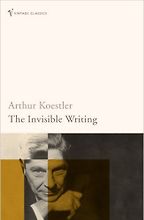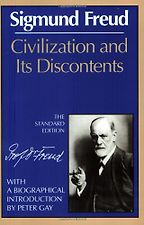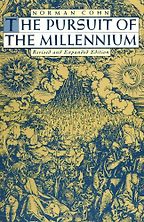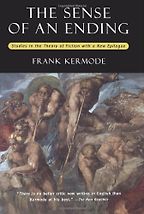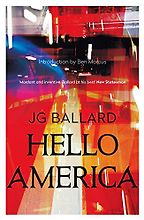What do we mean when we talk about utopia?
Etymologically, the word “utopia” means “nowhere”. It doesn’t exist. It also, through a homonym in the Greek, has been mistaken to mean “good place” – whereas most utopias, if realised, would I think be worse than reality. A utopia would impoverish us in an imperfect world which actually gives meaning to the lives of those who live in it. I would call a project utopian if it can be known with reasonable confidence in advance that it cannot be realised. Marxism and communism is an example – a highly industrialised society that abolishes institutions of property and market competition is, I think, actually impossible. One might be able to realise some communist form of economic life in a primitive rural form, even if it wouldn’t last very long. But much else in communism is inherently impossible.
If utopias are unreachable – you could say that in Thomas More’s 1516 book Utopia, which coined the term, that’s the whole point – why does that make the striving for them pernicious?
There are those who say that utopian projects, while they can never be achieved, are valuable because they spur human advance. That’s not my view. My view is that the attempt to achieve the impossible very often – if not always – has huge costs. Even if a project has good intent, its colossal cost always outweighs its reasonability, as we saw in Iraq. What is distinctive about utopianism at the end of the 20th century and start of the 21st is that it has become centrist. In other words, for the first half of the 20th century utopianism was extremist, but now we have the utopian idea of building democracy in Libya or Afghanistan. So the utopian impulse – the impulse to achieve what rational thought tells us is impossible – has migrated to the centre of politics. That is connected with humanism and the idea of progress.
How do you connect utopianism to humanism?
What I understand by humanism today – particularly in the strong secular forms in which it has developed – is the idea that there can be, through the efforts of politics, a semi-irreversible cumulative advance that hasn’t happened except in science and technology, in which gains that have been made in the past in human knowledge and society are conserved and multiplied over time.
To give that belief its philosophical term, we’re talking about meliorism?
Precisely. Meliorism is the belief in gradual or incremental progress. Especially in the English speaking world – less so in central and eastern Europe, or the Far East – it is commonly thought of as an eminently sensible, empirical tradition that no one can resist. But there are many contexts in history, for example central Europe between the two world wars, in which such incremental, piecemeal progress is actually impossible.
What meliorism presupposes is an historical circumstance in which there are relatively stable institutions to which humans can subscribe, and that the goals, values, interests and ideals of people in that context are not irreconcilably opposed. In other words, for meliorism to be possible – making improvements in one generation which are carried over into subsequent generations – you need a certain historical background which is actually often lacking. Historically successful meliorism has occurred in a few very fortunate regimes or systems, like Britain and America, where the past 150 years have brought enormous continuity. But in most of the world, such as continental Europe, there hasn’t been melioristic advance in that same period of time, but interrupted continuity and intense conflict.
Arthur Koestler certainly lived through such interrupted times.
Koestler may have had flaws as a human being – which his biographers have examined – but he is a giant figure, and has something to teach us today which is not at all dated by the Cold War. This is the second volume of his autobiography, The Invisible Writing, dating from 1932 to 1940, which were the years of his deep immersion in communism and his emerging out of it before moving to Britain in 1940.
He responds to a view by [the critic] Raymond Mortimer that Koestler’s writings assume events to be normal which Mortimer considers abnormal. This drew from Koestler an angry and well justified reply at the end of this volume of memoirs that his life, on which he based his writing and thinking, was completely normal for people in most of Europe at that time. It was normal to fear the loss of one’s life savings. It was normal to fear the knock on the door in the middle of the night and be carted off. It was normal to fear that one would be executed as a writer or journalist or ordinary person caught up in the conflict. Koestler was delighted when he fled to England and lived in a society in which these things were abnormal.
What is important about that – which is still adamantly denied by liberal humanists – is that the piecemeal, incremental, melioristic advance of which those humanists speak was entirely impossible in the historical context in which Koestler found himself. So utopianism doesn’t just apply to schemes of radical political renewal of the sort that the Bolsheviks attempted. Meliorism can also be utopian, because it presupposes a background of institutions and reconcilable groups in society that very well may not exist. In most of human history, progress in this cumulative sense is impossible, and that’s one of the reasons why I’ve defended a more cyclical view of history.
How did Koestler come to reject communism?
I was long an anti-communist myself, but I don’t condemn Koestler for becoming a communist when he did, and he saw pretty early – by the end of the thirties – that the Soviet Union was an illusion. The communists said there would be wars, famines, periods of dictatorship, even of mass murder, but out of this, they thought – and Koestler thought this too, for a while – something incomparably better would emerge, something better than anything that had existed. There was indeed mass murder and dictatorship and horrific experiments but it produced absolutely nothing, only human suffering on a vast scale. So Koestler repudiated it, and that was his intellectual as well as moral and physical courage.
Today he’s best known for his anti-totalitarian writings, Darkness at Noon first and foremost.
He is associated with that, and Darkness at Noon is of course a great book – not only for Koestler’s disillusionment with communism but for his insights into the psychology of belief. But the period The Invisible Writing covers, from 1932 to 1940, was the most dramatic time of his life. The milieu of adventurers, agents, spies, journalists and refugees in which he moved is absolutely fascinating. He was on the run; he was captured and sentenced to death, then exchanged in a hostage swap; he knew everyone in the overt and covert communist movements of the period; he witnessed the fall of France. It’s fresh, vivid, very analytical and wonderfully written. It’s a revealing book not only about that period in history, but about a highly cultivated, bold and intrepid mind, right in the middle of one of the crucibles of 20th century conflict and horror, trying to make sense of it.
Koestler survived it mentally and physically, wasn’t broken by it, and went on thinking and writing to produce one of the most profound commentaries on the 20th century experience which has the message today which is as unwelcome as it was in the forties – that these things are normal elements of human experience. And I think he’s absolutely right.
One of the propositions of meliorism is that in this improvement of our human condition – this ethical and political progress – we’re not shackled by biology. Do you reject that, and think that human nature is unrestrainable?
It’s restrainable by civilisation, and that would take us neatly to Freud.
Let’s talk about Freud then. Tell us what he says about human nature and society in Civilisation and Its Discontents.
Freud is a very relevant figure to this discussion. The limits of progress are in the flaws and divisions of human nature, which are integral to being human. The way Freud represents this in a number of his works, including Civilisation and Its Discontents, is to say that there are a variety of instincts – a very unpopular term now which may not be scientifically valid – from benevolence and love on the one hand to violence and aggression on the other, which are equally part of the human animal.
Civilisation, as Freud understands it, begins with the restraint of violence – although of course it doesn’t end there. A civilised state is one which controls violence. Freud’s key point is that because humans are self-divided in the way I’ve described, civilisation always carries with it a degree of repression of instinctual satisfaction, which in turn means that the civilisational condition will always be one of discontent. In other words, it’s not possible to imagine – and dangerous to experiment with – any conception of a civilisation emptied of its discontent, in which all desires are satisfied and society doesn’t exact a price for the repression of violent impulses.
Freud thought that civilisation is inestimably valuable – unlike some other writers in central Europe, he was never tempted by barbarism. But he also recognised that civilisation is inherently flawed, not because of political repression and corruption or economic inequality, but because of the nature of the human animal. That is why civilisation can never be rid of its faults, can never be entirely benign. I think that is true. In the language of religion, it might be called original sin. In other religions such as Buddhism, it is called original ignorance. However one wants to put it, it is a truth that humans are ineradicably flawed, and that is a commonplace in pretty much any religious tradition. It’s only recently, in the last 150 years, that the idea which Freud presented in a secular form is considered to be shocking.
That flaw being that humans are governed by what Freud calls the “pleasure principle”.
And the death principle, or death instinct. All these instincts are curbed in society for the benefit of civilisation, and I agree that civilisation carries a price of that repression. If we’re reasonable, we should make sure that the repression is necessary, not cruel and irrational as hostility towards sexuality has been. In other words, elements of this repression are needless and should be eliminated. But part of the territory of humanity are our impulses of cruelty and destruction, which are not the result of a bad environment, education or power structure but are integral to us as humans.
We should also discuss Freud in the context of religion – another constraint on human nature, as subordinate to the ultimate father figure of God.
Freud is a very interesting writer on religion. As you say, he is strongly critical of religion in many ways. But he has a much more complex view of it than many people think. He never renounces or diminishes his atheism – he lived and died an atheist. I’m an atheist myself, so I sympathise with that. But Freud came to think that religion also had an irreversible role in human development, and was one of the seeds that created the later possibility of psychoanalysis, because [of the religious notion that] the workings of our minds may be invisible to ourselves. So he came to think, as he argues in Civilisation and Its Discontents, that although religion has at times added needlessly to the repression that is necessary for civilised life, it has nonetheless played an irreplaceable role in human development. In this sense he wasn’t an evangelical atheist.
Whereas your own critique of utopianism and meliorism could also be read as a critique of Christianity.
It’s true that I’m not a Christian, and don’t follow any religion. And here I think we’re moving towards Norman Cohn.
Let’s do so. Introduce The Pursuit of the Millennium for us, which traces millenarian or “end of days” conflicts from the 11th to 15th century.
I first read Norman Cohn back in the sixties, an awful long time ago. It stayed with me and had a profound effect on me, and emerged in my work in a clear way in the book Black Mass. My own copy is inscribed to me by Norman Cohn, which I’m quite proud of. The idea for the book came to him during the Second World War, when he participated in the debriefing of some senior Nazis who displayed aspects of what he recognised even then to be an apocalyptic mentality. Some of them said that although they lost, they were happy that they had destroyed so much and brought an end to a certain type of civilisation.
As you say, the book is an examination of millenarian movements in the late medieval and early modern period – that is, movements that expected a radical transformation in human affairs, as a result of divine intervention with the emergence of a new messiah. Examples in central Europe include John of Leiden of the [1534] Münster rebellion. These were leaders who took control of an area or city, abolished private property and set up a form of theocratic communism. They believed that the church, society and the world itself had become completely corrupt, and that change could only be achieved through divine intervention.
And through a crucible of violence and upheaval.
Absolutely. There was an awful lot of violence, and the theocratic experiments were very harsh when they were brought in. People were forced to give up any wealth or gold they owned, some of them were forbidden to close their windows and had to be under public supervision all the time, and some of the women were required to be the sexual property of men. They were almost parodies of the dystopian results that utopias very often have in practice. One of the reasons why I reject the idea of utopias is precisely because I find that many of the ends that they wish to realise would be horrific.
For instance?
Well, if you have a world with no religion at all, in which private property has been removed and replaced by communal arrangements, or in which families have ceased to exist because we are communists – rather like the early Bolsheviks were very hostile to the family – then some cost to civilisation might be removed, but so too would a great deal of what civilisation values.
Norman Cohn looks at some common factors in millenarian movements, such as the social and economic contexts in which they arise.
People often take up these movements in periods where they are dislocated by economic and other types of change. If you look at some of the discussions of the Tea Party in America today, it has become almost commonplace to say that they contain apocalyptic elements.
The rapture is certainly a thread.
Yes, there’s that. Also the idea that there needs to be a radical or total change in American institutions, otherwise they will collapse or disintegrate. There have always been such crazy ideas in American politics, but they have been at or near the fringes. They have never gotten close to the centre of political power, and probably never will. But they are much closer now. Why? Because of the dislocation of the financial crisis and its economic side effects. Many millions of Americans have lost equity on their homes, lost their jobs or are afraid of losing them, found their pensions depleted, and have children who are unemployed. In other words, the reason why these ideas have become more compelling in America is economic.
Cohn also identifies the common denominator of a messiah-like prophet as a catalyst. Presumably Glenn Beck is not that, whatever he might think.
One hopes very much he is not! It’s hard to know what is going to happen now in US politics. What is significant about Obama, whatever his failures, is his palpable sanity. He is an immensely sane leader. And it’s an odd question to ask, but I wonder if sanity is a political advantage or disadvantage in these circumstances in America?
We’d be remiss not to mention Cohn’s conclusion, in which he discusses in two pages of a 500-page book the contemporary utopianism of the Nazis and the communists.
Indeed. Cohn applies his analysis of medieval and early modern millenarian movements to 20th century totalitarian movements, in particular to Leninism and Stalinism on the one hand and Nazism on the other. He is able to demonstrate that although the belief systems were different – in the case of Leninism and Stalinism it was grounded in dialectical materialism, in the case of Nazism in a pseudo-science founded on racism – and different from the belief systems that animated the medieval and early modern millenarians, the categories of thinking were strikingly similar. For instance, the idea of history as moving towards a cataclysmic conflict between dark and good forces which would shake the foundations of the world. That is just one example of the type of thinking that was preserved and reproduced in 20th century totalitarianism, despite the rejection of the specific religious beliefs with which it was associated.
Utopianism first existed in religious and apocalyptic forms in the context that Cohn analyses. It then existed, for much of the 20th century, at the extremes of politics – the Bolsheviks and the Nazis. That was destroyed for a while, but now we may be seeing some of the toxins of the far right re-emerging. I think it’s already evident that the classical poisons of European politics – anti-semitism, and hatred of internal and external minorities such as gypsies and gays – are re-emerging in politically significant forms as a response to the economic crisis. It’s not like 1930s Nazi Germany, thank God – there aren’t mass parties like the Nazis – but I think there’s a paranoid vision of the world of the same kind that Cohn explores that is re-emerging at the present time.
In The Sense of an Ending, Frank Kermode looks at similar concepts through the lens of literature. Ian McEwan, who also chose The Pursuit of the Millennium in his Five Books interview, told me Kermode’s book “elaborated on Cohn’s masterwork by suggesting that actually it’s very common for all of us to feel that we live at the end of times”.
I’m interested in The Sense of an Ending for some of the same reasons that McEwan was. In the book, Kermode talks about myths and fictions – how they differ from one another, and how they play a role not only in literature but also in politics and history. He takes the view of the great 20th century poet Wallace Stevens that we find ourselves having to live on the basis of what we recognise to be fictions, and that fictions create meaning in human life that wasn’t there before. Kermode argues that fictions are, in a way, hardly necessary. That much of our life consists of living in the context of fictions which have a tight hold on the lives they give meaning to. Kermode says that myths and fictions have reached the state where their human authorship has been forgotten.
I disagree, and like to turn this around by saying that fictions are decaying or fading myths. People who join a religion like Christianity or Islam feel that if they follow this path their life will become meaningful. But there’s a hint of doubt all along that this might be fiction. And not all myths are benign – some are poisonous and malign, like the myths of racism, whereas other myths may not be inherently bad but simply shallow and dangerous.
Kermode touches on the psychology of this kind of faith, which reminded me of a quote I enjoy from your own book Heresies: “People need to believe that order can be glimpsed in the chaos of events.” Is that the human impulse behind utopianism?
I think it is a very human impulse. It is hard for us to accept the degree of randomness there is in the world and in our lives, especially when that randomness operates destructively on us. I forget who said that paranoia is a protest against unimportance. It may have been me. A paranoid delusion can be of defensive benefit to the person who has it, because it gives them the sense of being at the centre of the world, whereas the reality is practically always that nobody cares about them at all and they are of no significance. The delusion of there being order in the chaos of experience can also lead to great human achievements, in science for instance, or in literature where the chaos of history and experience is shaped and moulded into meaningful and significant forms. So it is a benign impulse to that extent. But it can also be tremendously dangerous, because it leads to the phenomena of scapegoating and targeting which emerge in periods of toxic politics.
If you are in the midst of a crisis such as in Europe – where states are going bankrupt, your job is not secure, your mortgage is unpayable and bank interest is declining – there is a tremendous danger under those circumstances to find a pattern of events that explains these changes in reference to groups that supposedly brought them about or benefited from them. This kind of paranoid politics is rooted partly in economic crisis and social dislocation, but also in the need to survive periods of extreme insecurity by finding meaning. Often that meaning is benign, but it can also partake of the destructive and deadly impulses of which Freud wrote and be powerfully shaped by hatred, enmity, destruction, cruelty and the desire to bring suffering to groups of people in society around you.
So a discussion of myth and fiction sounds obscure, but is actually very important. What Kermode wants is that the fictive state of our interpretation of reality can be fully recognised, but I don’t think that will ever be possible.
Let’s finish with JG Ballard’s novel. Summarise the plot for us if you will, and tell us why it’s on your list.
This is a vision, relevant to our discussion of apocalypse, of a century or so from now when climate change has made most of the American continent uninhabitable, with large parts of it covered by rainforest or desert. The ideas it puts forward are presented in the context of an adventure story, of a group of Europeans who explore this almost abandoned continent and come across various groups and tribes who live in the ruins or jungles. JG Ballard himself lived through what might be called an apocalypse – that is, the collapse of life in Shanghai under Japan [in the Second World War] and his subsequent internment in a camp.
Ballard was a tremendous admirer of surrealist painters – he wanted to be a painter himself but didn’t have the talent, he used to say – and the novel is a tremendous gallery of images, beginning with a ship pulling into an empty New York, where everything turned gold by the sun. That image has a larger significance. In his work, Ballard turned his own experience, which appears throughout his writing, and visionary images of breakdown and collapse – in the literary genre of apocalyptic fan fiction of the kind that Kermode discusses – into something beautiful. In other words, he turns the trauma, even the horror, of his experience into gold.
The novel ends with the promise of a new world order. Ballard writes: “The old dreams were dead… It was time for new dreams, worthy of a real tomorrow.” Are you not suspicious of that ending?
No, not at all. It’s an anti-apocalyptic ending. He is representing in poetic and literary images the truth that life doesn’t end, human fulfilment doesn’t end, and that the notion of an apocalyptic shift which ends everything as we know it and begins the world anew is unreal. What I like about Ballard’s work is how he turns this apocalyptic vision into something life affirming. Whatever catastrophes happen in history, human life re-emerges and other types of civilisation arise. That is also my belief.
To me, the apocalyptic mentality is tremendously dangerous because it looks forward to an utter transformation in which everything which has been before disappears and something wholly different comes into being. Of course, that never happens. However many people are killed or die in utopian experiments of different kinds, the dream of the utopia never comes about. But what eventually emerges is something different – not the utopia but a reversion to something more like normal life, but only after terrible and pointless suffering.
You use the word “dream”. How are dreams and aspirations – both national and personal – different to utopian thinking?
Utopianism is a particular type of dream. What is embodied in utopianism is what Freud might have called “infantile omnipotence”. In other words, the idea that human wishes, perceptions, desires and visions can be embodied in the world. That if we can imagine a world without dictators or private property or war, then such a world can be brought about by an exercise of will. But to do that, the obstacles – which are often a large number of human beings – have got to be removed. That is the danger.
Get the weekly Five Books newsletter
If you ask why such and such a revolution produced something different from what it intended, you find in all revolutions – from the Bolsheviks to 1989 – that their original myth was replaced by a myth of betrayal and conspiracy, with Trotsky or Stalin as the betrayer for example. In the case of Iraq, if you ask conventional liberal interventionists they would say if more thought had been given to reconstruction – if they hadn’t just gone straight in, or if this, that and the other had been done – then it would have worked out. But that the revolution in its very nature could not have yielded results that were expected or hoped for is never admitted, because that would compromise the omnipotence of thought that inspired the original project. That infantile fantasy of the omnipotence of thought is the root of utopian thinking, in both its millenarian and its meliorist forms, and the source of its danger.
Five Books aims to keep its book recommendations and interviews up to date. If you are the interviewee and would like to update your choice of books (or even just what you say about them) please email us at editor@fivebooks.com
Five Books interviews are expensive to produce. If you've enjoyed this interview, please support us by donating a small amount.
